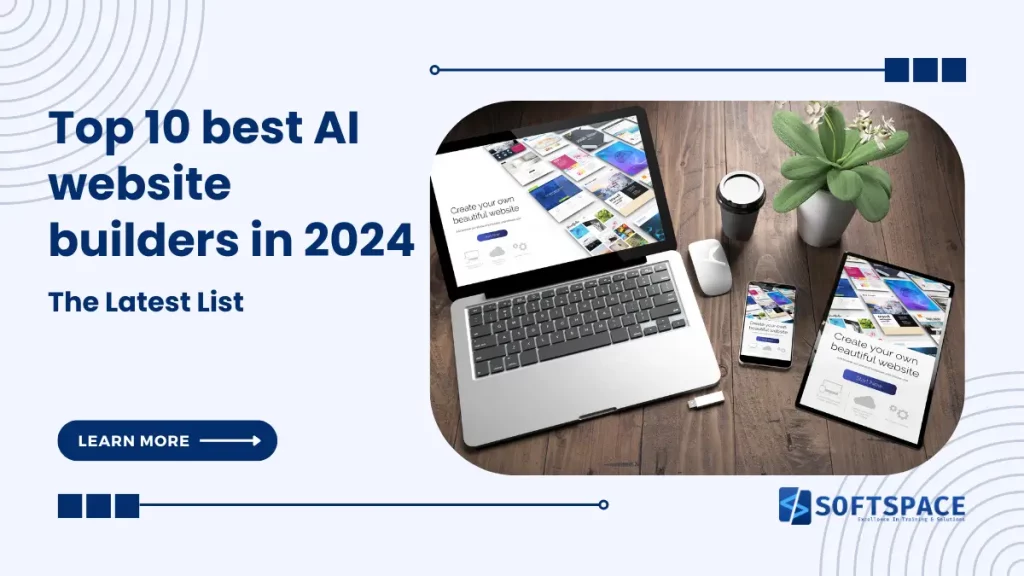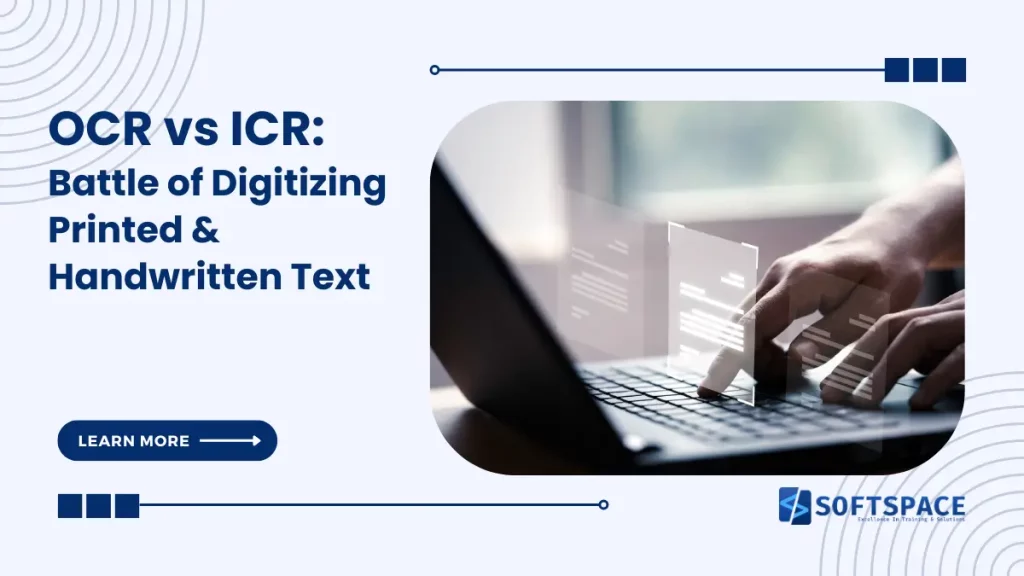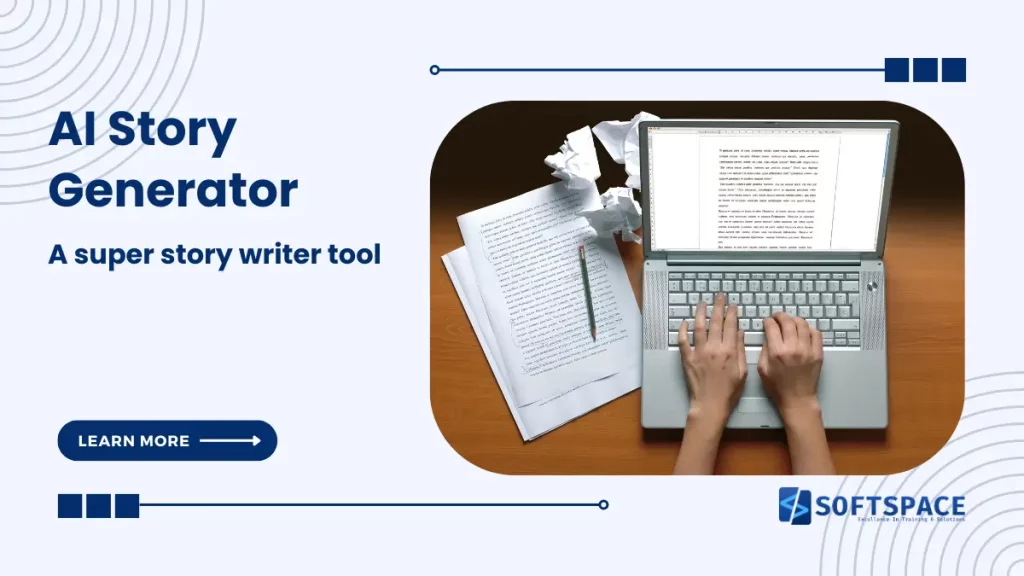In the ever-evolving digital landscape, having a professional, user-friendly website is essential for any business or individual looking to establish an online presence. As we step into 2024, the rise of AI website builders has revolutionized the way websites are created, offering sophisticated tools that make the process faster and more efficient.
But with so many options available, how do you choose the best one? This article will guide you through the top 10 best AI website builders in 2024, helping you make an informed decision.
Table of Contents
What are AI Website Builders?
AI website builders leverage artificial intelligence to simplify the process of creating a website. These platforms use algorithms and machine learning to automate many aspects of website design and development, from layout to content suggestions.
Definition and Functionality
AI website builders analyze user inputs and preferences to generate a customized website. They often come with drag-and-drop interfaces, pre-designed templates, and AI-driven content creation tools.
Benefits of Using AI Website Builders
Using AI in website building offers numerous advantages:
- Efficiency: AI tools can significantly reduce the time required to build a website.
- Ease of Use: These platforms are designed to be user-friendly, even for those with no technical expertise.
- Customization: AI can tailor the website to match the user’s specific needs and preferences.
- SEO Optimization: Many AI builders come with built-in SEO tools to help improve your site’s visibility.
Criteria for Selecting the Best AI Website Builders
Selecting the best AI website builder involves evaluating several key criteria to ensure the chosen platform meets your needs and provides an optimal user experience. Here are the primary factors to consider:
1. Ease of Use
- User Interface: Intuitive and user-friendly interfaces make it easier for beginners and non-technical users to build websites.
- Templates and Themes: A variety of customizable templates and themes can simplify the design process.
- Drag-and-Drop Functionality: This feature allows users to easily add and arrange elements on their website without needing to code.
2. Design Flexibility and Customization
- Customization Options: The ability to customize templates, fonts, colours, and layouts to match your brand.
- Advanced Design Tools: Availability of tools for more complex design needs, such as CSS editing or custom code integration.
3. AI Capabilities
- AI Design Assistance: AI-powered suggestions for design improvements, content creation, and layout optimization.
- Personalization Features: AI tools that personalize the user experience, such as content recommendations based on visitor behaviour.
- SEO Optimization: AI tools that optimize your website for search engines, including keyword suggestions and on-page SEO analysis.
4. Performance and Reliability
- Loading Speed: Fast loading times for better user experience and SEO ranking.
- Uptime Guarantee: High uptime percentage to ensure your website is always accessible.
- Mobile Responsiveness: Automatic optimization for mobile devices to ensure your site looks good on all screens.
5. Integration and Functionality
- Third-Party Integrations: Compatibility with other tools and platforms like social media, email marketing, e-commerce, and analytics.
- E-commerce Features: For online stores, features like product management, payment processing, and inventory tracking.
- Blogging Capabilities: Robust tools for creating and managing a blog.
6. Customer Support
- Support Channels: Availability of various support channels such as live chat, email, and phone support.
- Knowledge Base and Tutorials: Comprehensive resources to help users troubleshoot and learn how to use the platform effectively.
- Community Support: Access to user communities or forums where users can share tips and seek advice.
7. Pricing and Value for Money
- Free Trial or Free Plan: Availability of a free trial or plan to test the service before committing financially.
- Pricing Tiers: Flexible pricing plans to accommodate different budgets and needs.
- Included Features: A clear understanding of what features are included in each pricing tier.
8. Scalability
- Growth Potential: The ability to easily scale your website as your business grows, including adding more pages, features, or higher traffic capacity.
- Custom Domain and Branding: Options to use a custom domain and remove platform branding.
9. Security
- SSL Certificates: Free or included SSL certificates to ensure secure connections.
- Data Protection: Robust measures for data protection and privacy.
- Regular Updates: Frequent updates to address security vulnerabilities and improve platform performance.
10. User Reviews and Reputation
- Customer Feedback: Positive reviews and testimonials from users.
- Industry Recognition: Awards or recognitions from industry experts or publications.
- Case Studies: Success stories or case studies showcasing the platform’s effectiveness.
Top 10 Best AI Website Builders in 2024
1. Appy Pie’s AI Website Builder
Appy Pie’s AI Website Builder allows you to create a professional website in just minutes by simply entering a prompt—no coding required.
Pros:
- Simple for beginners
- Fast website creation
- Mobile-friendly
Cons:
- Limited design flexibility for advanced users
- Fewer templates for free users
2. Wix ADI
Wix ADI (Artificial Design Intelligence) creates a stunning website in minutes by asking a few simple questions. It offers a wide range of templates and customization options.
Pros:
- Highly intuitive interface
- Extensive template library
- Robust SEO tools
Cons:
- Can be pricey for premium plans
- Limited customization for advanced users
3. Zyro
Zyro uses AI to generate website content and design layouts. It offers a heatmap tool to optimize user experience.
Pros:
- Affordable pricing
- AI-driven content creation
Cons:
- Fewer templates compared to competitors
- Limited third-party integrations
4. Bookmark
Bookmark AI, AIDA, designs a website in under two minutes. It offers e-commerce integration and multilingual support.
Pros:
- Quick setup
- E-commerce capabilities
Cons:
- Basic customization options
- Limited SEO features
5. Jimdo Dolphin
Jimdo Dolphin asks users a few questions and builds a website based on their answers. It’s perfect for small businesses and personal websites.
Pros:
- Easy to use
- Integrated SEO tools
Cons:
- Limited design flexibility
- Basic e-commerce features
6. Hostinger Website Builder
Hostinger offers an AI-driven website builder with a focus on performance and speed. It includes SEO tools and e-commerce functionalities.
Pros:
- Excellent performance
- Affordable plans
Cons:
- Limited template designs
- Basic customization options
7. B12
B12 combines AI with human-assisted design services. It’s ideal for professional websites with specific requirements.
Pros:
- Personalized design assistance
- Advanced customization
Cons:
- Higher cost
- Longer setup time
8. Site123
Site123 AI builder is perfect for those needing a quick and simple website. It offers multilingual support and SEO tools.
Pros:
- Fast setup
- Multilingual support
Cons:
- Limited design options
- Basic e-commerce features
9. Ucraft
Ucraft uses AI to streamline website creation and offers a variety of design tools and integrations.
Pros:
- Extensive customization options
- Strong SEO features
Cons:
- Slightly steeper learning curve
- Premium pricing
10. The Grid
The Grid uses AI to create dynamic, adaptive websites. It’s known for its unique design capabilities.
Pros:
- Innovative design
- Adaptive layouts
Cons:
- Limited user control
- Higher pricing
11. 10Web
10Web uses AI to offer a comprehensive website-building experience, including hosting, SEO, and e-commerce tools.
Pros:
- All-in-one solution
- Strong SEO tools
Cons:
- Higher cost
- Can be complex for beginners
Detailed Comparison of the Top 10 AI Website Builders
Customization and Design Flexibility
Wix ADI and Ucraft lead the pack with their extensive customization options, allowing users to create unique designs tailored to their specific needs.
User Experience and Interface
Jimdo Dolphin and Site123 excel in user experience, offering intuitive interfaces that make website building a breeze, even for beginners.
Pricing Plans
Zyro and Hostinger offer the most affordable pricing plans without compromising on essential features.
Integration with Other Tools
10Web and Ucraft provide robust integrations with various third-party tools, enhancing the functionality of your website.
SEO and Marketing Capabilities
Wix ADI and 10Web stand out for their comprehensive SEO and marketing tools, helping your website achieve better visibility and reach.
Pros and Cons of Using AI Website Builders
Pros
- Time-Saving: AI website builders significantly reduce the time needed to create a website.
- User-Friendly: They are designed to be easy to use, even for those with no technical skills.
- Cost-Effective: Many AI builders offer affordable pricing plans, making them accessible to a wide range of users.
- SEO Optimization: Built-in SEO tools help improve your website’s search engine ranking.
Disadvantages
- Limited Customization: Some AI builders offer limited design flexibility, which can be a drawback for advanced users.
- Dependence on Algorithms: Relying on AI means you might miss out on the personal touch that a human designer can provide.
How to Get Started with an AI Website Builder
Step-by-Step Guide
- Choose the Right Platform: Based on your needs and budget, select an AI website builder from the list above.
- Sign Up: Create an account on the chosen platform.
- Input Your Preferences: Answer the questions posed by the AI to tailor your website.
- Customize Your Design: Use the available tools to tweak the design to your liking.
- Add Content: Populate your website with text, images, and other media.
- Optimize for SEO: Use the built-in SEO tools to improve your site’s visibility.
- Publish: Once you’re satisfied with your website, publish it and share it with the world.
Tips for Maximizing the Benefits
- Utilize Templates: Start with a template to save time.
- Experiment with AI Features: Make the most of the AI tools available to enhance your site.
- Stay Updated: Keep an eye on updates and new features offered by the platform.
Case Studies
Real-World Examples of Successful Websites Built with AI
- Small Business Website: A local bakery used Wix ADI to create a stunning online presence, attracting more customers and increasing sales.
- Personal Portfolio: A freelance photographer built a professional portfolio with Jimdo Dolphin, showcasing their work and securing new clients.
- E-Commerce Store: An online retailer leveraged 10Web’s AI tools to build a robust e-commerce site, enhancing user experience and boosting sales.
Future Trends in AI Website Building
Emerging Technologies
- AI-Driven Personalization: Future AI website builders will offer even more personalized design and content suggestions.
- Voice Search Optimization: As voice search becomes more prevalent, AI builders will incorporate tools to optimize websites for this technology.
Predictions for 2025 and Beyond
- Increased Automation: Website building will become even more automated, reducing the need for manual input.
- Enhanced User Experience: AI will continue to improve user experience, making website navigation more intuitive.
Conclusion
AI website builders are revolutionizing the way websites are created, offering speed, efficiency, and user-friendly interfaces. With a plethora of options available in 2024, it’s crucial to choose the right platform based on your specific needs and budget. By leveraging the power of AI, you can create a professional, SEO-optimized website with ease.
FAQs
- What is the difference between a traditional website builder and an AI website builder? AI website builders use artificial intelligence to automate the design and content creation process, making it faster and easier compared to traditional website builders.
- Are AI website builders suitable for all types of websites? Yes, AI website builders are versatile and can be used for various types of websites, including business, e-commerce, personal portfolios, and blogs.
- Can I switch from an AI website builder to a traditional one? While it is possible to switch, it may require additional effort to migrate your content and design. It’s best to choose a builder that aligns with your long-term needs.
- How secure are AI website builders? Most AI website builders offer robust security features, including SSL certificates and regular updates, to protect your website from threats.
- What is the future of AI in web development? The future of AI in web development looks promising, with advancements in personalization, automation, and user experience expected to continue.

13+ Yrs Experienced Career Counsellor & Skill Development Trainer | Educator | Digital & Content Strategist. Helping freshers and graduates make sound career choices through practical consultation. Guest faculty and Digital Marketing trainer working on building a skill development brand in Softspace Solutions. A passionate writer in core technical topics related to career growth.




